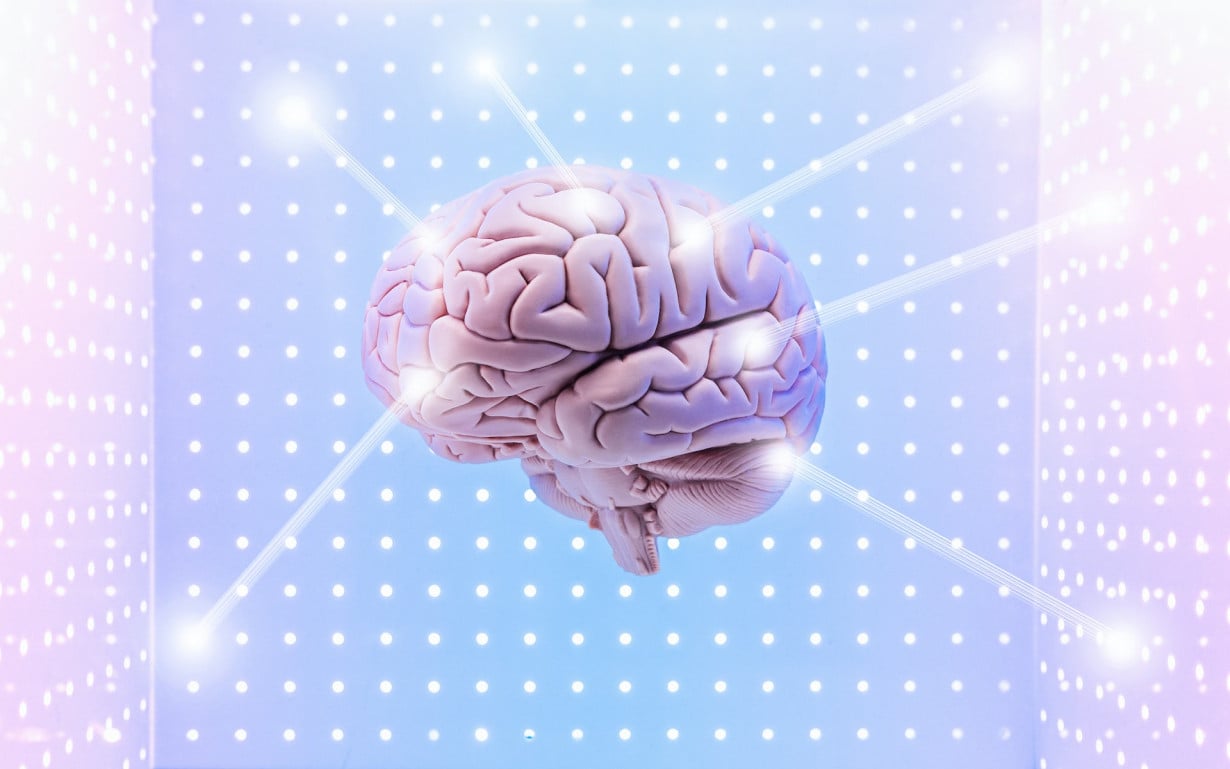It can be challenging to create a treatment plan for depression. This is especially true for patients who aren’t responding to conventional treatments and are undergoing experimental therapies such as deep brain stimulation. For most medical conditions, doctors can directly measure the part of the body that is being treated, such as blood pressure for cardiovascular disease. These measurable changes serve as an objective biomarker of recovery that provides valuable information about how to care for these patients.
On the other hand, for depression and other psychiatric disorders, clinicians rely on subjective and nonspecific surveys that ask patients about their symptoms. When a patient tells their doctor they are experiencing negative emotions, is that because they are relapsing in their depression or because they had a bad day like everyone does sometimes? Are they anxious because their depression symptoms have lessened enough that they are experiencing new feelings, or do they have some other medical problem independent of their depression? Each reason may indicate a different course of action, such as altering a medication, addressing an issue in psychotherapy or increasing the intensity of brain stimulation treatment.
We are neuroengineers. In our study, newly published in Nature, we identified potential biomarkers for deep brain stimulation that could one day help guide clinicians and patients when making treatment decisions for those using this approach to alleviate treatment-resistant depression.
Biomarker for depression
Clinical depression does not respond to available therapies in a significant number of patients. Researchers have been working to find alternative options for those with treatment-resistant depression, and many decades of experiments have identified specific brain networks with abnormal electrical activity in those with depression.
This notion of depression as abnormal brain activity rather than a chemical imbalance led to the development of deep brain stimulation as a depression treatment: a surgically implanted, pacemaker-like device that delivers electrical impulses to certain areas of the brain. Studies testing this technique have found that it can decrease depression severity over time in most patients.
Our research team wanted to find specific changes in brain activity that could serve as a biomarker that objectively measures how well deep brain stimulation is helping patients with depression. So we monitored the brain activity of 10 patients receiving deep brain stimulation for severe treatment-resistant depression over six months.
At the end of six months, 90% of the patients responded to the therapy – defined by a reduction of symptoms by at least a half – and 70% were in remission, meaning they no longer met the criteria for clinical depression.
To identify a potential biomarker, we developed an algorithm that looked for patterns in brain activity changes as patients recovered. The algorithm was based on data from six out of the original 10 patients who had usable data from the experiment. We found that there are coordinated changes in different frequencies present in the electrical activity within the area of the brain being stimulated. Using these patterns, the algorithm was able to predict whether someone was in a stable recovery with 90% accuracy each week.
Interestingly, we observed some parts of this pattern moved in the opposite direction later in stimulation therapy compared with the patterns at the start of therapy. This finding provides evidence that the long-term recovery is due to the brain adapting to the stimulation in a process called plasticity rather than as a direct effect of the stimulation itself.

We also saw other potential biomarkers worth investigating further.
For example, abnormalities in brain imaging taken before implanting the electrodes in specific parts of the brain correlated with how sick each patient was. This could provide clues about what’s causing depression in some people, or help develop imaging methods to determine who might be a good candidate for deep brain stimulation.
For another example, we found that the facial expressions of patients changed as their brains changed over the course of their treatment. While physicians often report this anecdotally, quantifying these changes may provide a way to develop objective markers of recovery that incorporate a patient’s behavior with their brain signals.
Because the results of our study are based on a small sample of patients, it’s important to further investigate how broadly they can be applied to other patients and newer deep brain stimulation devices.
Improving decision-making for depression
Clinical depression is a debilitating condition that causes significant personal and societal suffering. It is one of the largest contributors to the overall disease burden of many countries. Despite the many approved treatments available, nearly 30% of the 8.9 million U.S. adults taking medications for clinical depression continue to have symptoms.
Deep brain stimulation is one of the alternative therapies for treatment-resistant depression that researchers are investigating. Studies have shown that deep brain stimulation can offer effective and long-term relief for some patients.
Although deep brain stimulation is an approved treatment for other conditions like Parkinson’s disease, it remains an experimental therapy for treatment-resistant depression. While the results from small experimental studies have been positive, they have not been successfully replicated in large-scale, randomized clinical trials necessary for approval from the U.S. Food and Drug Administration.
Finding an objective biomarker that measures recovery in depression has the potential to improve treatment decisions. For example, one patient in our study had a relapse after several months of remission. Were a biomarker available at the time, the clinical team would have had warning that the patient was relapsing weeks before standard symptom surveys showed that anything was wrong. Such a tool could help clinicians intervene before a relapse becomes an emergency.

Christopher Rozell serves on the scientific advisory board and owns shares in Motif Neurotech, Inc. and is a listed inventor on intellectual property related to this work. He receives funding from NIH, NSF and the James. S. McDonnell Foundation. Hs is affiliated with the Georgia Institute of Technology, serves on the board of directors at Neuromatch, Inc., and serves on the advisory council of the Institute of Neuroethics.
Sankaraleengam Alagapan receives funding from the National Institute of Health. He is affiliated with the Georgia Institute of Technology. He is a listed inventor on intellectual property related to this work.

 Ex-Sen. Bob Menendez, citing 'emotional toll,' seeks sentencing delay in wake of wife's trial
Ex-Sen. Bob Menendez, citing 'emotional toll,' seeks sentencing delay in wake of wife's trial
 Cats can get sick with bird flu. Here's how to protect them
Cats can get sick with bird flu. Here's how to protect them
 An uneasy calm settles over Syrian city of Homs after outbreak of sectarian violence
An uneasy calm settles over Syrian city of Homs after outbreak of sectarian violence
 WHO chief says he was at Yemen airport which Israeli strikes targeted
WHO chief says he was at Yemen airport which Israeli strikes targeted
 Organizers say two sailors have died in Sydney to Hobart yacht race amid wild weather conditions
Organizers say two sailors have died in Sydney to Hobart yacht race amid wild weather conditions
 Column-Why US Congress restored Social Security benefits for public-sector retirees: Mark Miller
Column-Why US Congress restored Social Security benefits for public-sector retirees: Mark Miller
 Peru declares environmental emergency after oil spill
Peru declares environmental emergency after oil spill
 Holiday travelers are facing flight cancellations as severe storms roll into the South
Holiday travelers are facing flight cancellations as severe storms roll into the South
 Miami Hurricanes men’s head basketball coach Jim Larrañaga steps down, cites NIL: ‘I’m exhausted’
Miami Hurricanes men’s head basketball coach Jim Larrañaga steps down, cites NIL: ‘I’m exhausted’
 Deep brain stimulation can alleviate treatment-resistant depression for some patients.
Deep brain stimulation can alleviate treatment-resistant depression for some patients.







